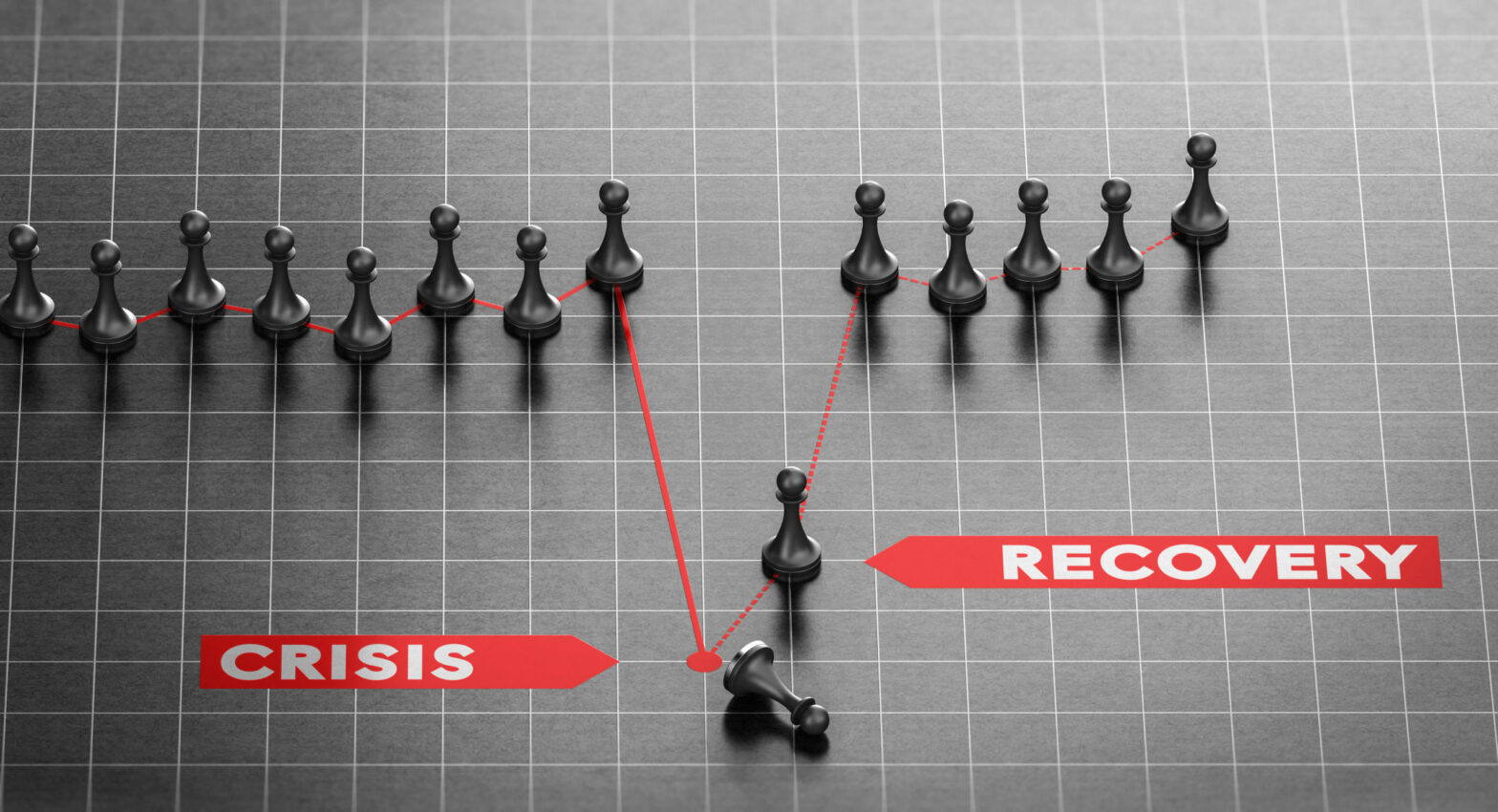Businesses that want to emerge from the Covid-19 crisis stronger need to invest in R&D and marketing and concentrate on core business, say experts.
Fast-growth businesses that want to survive the pandemic should concentrate on their core proposition and avoid making staff redundant, say leadership coach R Michael Anderson, whose clients include Salesforce, Uber and Microsoft, and Dr Nick Quinn of the Adam Smith Institute, University of Glasgow.
Dr Quinn and Anderson were presenting the first-ever Venturers Club virtual roundtable to an invited audience of members on Friday, June 18.
>See also: How to get £150,000 invested in your London tech start-up
Venturers Club is Growth Business’s free-to-join networking group for entrepreneurs seeking to grow their businesses.
Anderson and Dr Quinn have studied all the data around how companies dealt with the Great Recession post 2008, including research from Bain, McKinsey, Cornell University and Harvard Business Review.
Anderson said that businesses must resist their natural temptation to cut costs by making people redundant, and instead focus on the business’s core proposition, avoiding the temptation to buy distressed businesses cheaply in adjacent business sectors.
Dr Quinn said: “This Covid-19 pandemic is more like a natural disaster than a financial one.”
>See also: Bim Afolami calls for £15bn Recovery Fund for scale-ups
Anderson added: “When it comes to strategy, one wrong move can really make or break your company. Yes, it’s important to be careful about where you spend your money but the businesses that didn’t do well coming out of the last recession were the ones who cut costs wholesale. The companies that are going to come out well from this crisis are going to play a combination of offense and defence.
“It’s really important to watch out for layoffs. The cost of laying off and the cost of bringing people back on is a tremendous cost.”
Anderson stressed the importance of having a positive mindset when it comes to Covid-19.
“This is the time that leaders have to step up. People look to leaders right now, their looking to see how you handle this, when you’re in a leadership position,” he said.
Todd Herman, a peak performance expert, talked to between 30-40 CEOs about how they were coping with the pandemic and categorised their responses in three groups:
- Fear-focused CEOs
- Unfocused CEOs
- Strategy-focused CEOs
Herman discovered that the most panicked CEOs are consuming five times as much news compared to others, while the most strategic, forward-thinking CEOs were more outward looking, studying how other countries are coping with the Covid-19 pandemic, and are nine times more likely to have changed their products and four times more likely to have made changes to their teams.
Anderson said: “You have to get out of that fear-based thinking and watch the amount of media you consume.”
5 must-dos to help your business emerge from Covid-19 stronger
Dr Mark Quinn and leadesrship coach R Michael Anderson have combed data from management consultancies and universities to glean which business strategies worked best as companies emerged from the Great Recession of 2008.
#1 – Spend money upgrading your IT
Any technology that improves your relationship with clients is money well spent. Anything you can do to cut costs and give you a short-term payback, such as migrating to customer relationship management software or upgrading your sales platform, is a positvie. Technology also makes you more flexible and gives you more data for decision making.
#2 – Don’t cut back on marketing and sales
Marketing and sales have changed for everyone. People now have to market and sell without no face-to-face contact. And if you don’t have an e-commerce shopfront, you’re going to be left behind.
Cornell University looked at the hotel sector during the Great Recession and concluded that chains that invested in sales and marketing and attended trade shows, performed better than those which raced to the bottom by discounting room rates.
#3 – Use the downtime for R&D
According to Bain, the companies which invested in research and development did best when they came out of the 2008 Great Recession. For example, in 2009 Samsung doubled down on R&D to develop the Galaxy smartphone and got rid of non-core subsidiaries. Following the release of the Galaxy smartphone, the first serious rival to Apple’s iPhone, Samsung rose from 21st to sixth in the ranking of world companies.
#4 – Concentrate on your core business
Divest of any parts of your business outside of your core proposal. Now is not the time to look for distressed acquisitions in markets that you have long wanted to move in to, which may only pay dividends 10 or 20 years further down the line
#5 – Decentralise your decision making
When things are going through a period of chaos, decentralising decision making makes a big difference. Keep decisions being made to those closes to them firefighting on the ground, rather than hugging them to the C-suite.
Anderson said: “Invest in R&D and marketing if you want to survive the Covid-19 crisis. Marketing will become less expensive because you have fewer competitors and ad rates will go down.”
Join the Venturers Club
Do you have what it takes to be a Venturer? Join the free networking group for the UK’s most successful entrepreneurs and learn from the best
To find out more about joining the Venturers Club, go here






